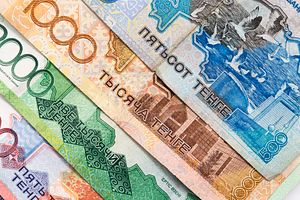Weekend reads:
Kazakhstan’s Cash Pile: “Cash pile” might not be a technical term but it suffices for describing Astana’s sovereign wealth funds — especially the $64 billion National Fund. According to Bloomberg, Kazakhstan’s President Nursultant Nazarbayev is looking to private equity and hedge funds to help boost returns, which have been lagging as global oil prices dip to new lows. Berik Otemurat, chief executive officer of the Kazakh Central Bank’s National Investment Corporation, said, “We are sitting on a huge pile of cash and not making real returns.” Otemurat’s other metaphors were a bit mixed:
“I have always thought about ourselves [Kazakhstan] as a newly-born giant kid standing on the shore of an ocean of opportunities for the country, being afraid to make our first steps without breaking a leg,” Otemurat said. “Before you run you have to learn how to walk.”
Central Asia Isn’t Into Coalitions: Joshua Kucera over at Eurasianet notices that Central Asia has been far from enthusiastic about the various coalitions forming to fight terrorism. Whether led by Saudi Arabia or the United States, Central Asia is content to sit on the sidelines. Kucera points out that these coalitions are largely meaningless, but that for Russia they’re a loyalty test of sorts.
Whose Backyard Is This? A recent piece in the Washington Post –– which is ripe for criticism for a number of reasons — nonetheless focuses on a dynamic worth paying attention to: the convergence and divergences of Russian and Chinese interests in Central Asia. Particularly interesting is the border between Kazakhstan and China, where it seems that Chinese businesses — lured by tax breaks and big promises — are finding little profit.
From the Chinese angle, development in Xinjiang has a complex logic of its own.Thankfully, Wade Shepard traveled through the region recently and wrote about it for The Diplomat. From Russia’s perspective, Chinese investment in the region is good for now — the long-term implications are conveniently ignored. For their part, the countries of Central Asia are happy for investment and financing wherever they can get it but wary of upsetting the balancing act they’ve perfected.
A Rough Year: Over on RFE/RL, Muhammad Tahir, director of the Turkmen Service, gathered a panel of his colleagues to discuss 2015 across the region. Bruce Pannier wrote up the core of discussion but the whole thing is worth a listen. Economics play a central role in looking at 2015 — with low oil prices putting pressure on all of the region’s states. In 2015, Kazakhstan unpegged its currency and saw a sharp devaluation. Meanwhile, less oil-dependent states like Kyrgyzstan and Tajikistan have been nonetheless stressed by the overall malaise — most noticeably through declining remittances. In the security realm, ongoing unrest in Afghanistan and the spike in violence in that country’s north — epitomized by the brief seizure of Kunduz in late September — has regional leaders worried. 2016 doesn’t look to be any better — something I note in our end of the year podcast at The Diplomat.
































